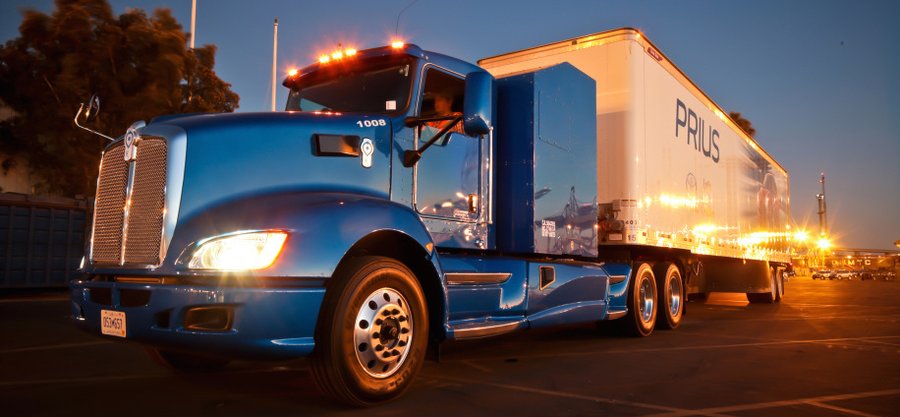That's the vision of Toyota Motor North America, which is ... bullish ... on hydrogen as a future energy source for consumer vehicles. It announced plans at the L.A. Auto Show to build the nation's first commercial-scale 100-percent renewable power plant in California, using manure from dairy farms in the state and capturing its methane to generate water, electricity and hydrogen.
The Tri-Gen plant, projected to come online in 2020, will be located at the company's operations at the Port of Long Beach, where Toyota is testing its zero-emissions hydrogen fuel-cell semi truck on daily runs of around 200 miles.
Toyota expects the plant to generate around 2.35 megawatts of electricity and 1.2 tons of hydrogen per day, enough to power the equivalent of nearly 2,350 average-sized homes and meet the daily driving needs of 1,500 vehicles. In addition to supplying the Project Portal proof-of-concept drayage trucks, the plant will fuel up new Mirai sedans being offloaded from Japan through its on-site hydrogen fueling station, one of the largest in the world.
"Tri-Gen is a major step forward for sustainable mobility and a key accomplishment of our 2050 environmental challenge to achieve net zero CO2 emissions from our operations," Doug Murtha, Toyota North America's group vice president of planning, said in a release.
The plant is based on a pilot project developed by FuelCell Energy, the U.S. Department of Energy, various California government agencies and the University of California at Irvine, according to Forbes.
Toyota says there are now 31 retail hydrogen filling stations open in California. It has a partnership with oil company Shell to open more stations.
Related News

